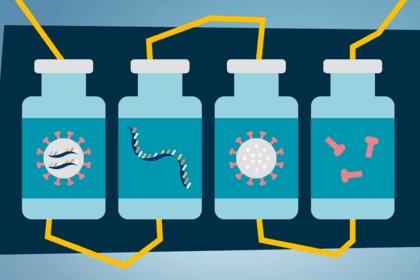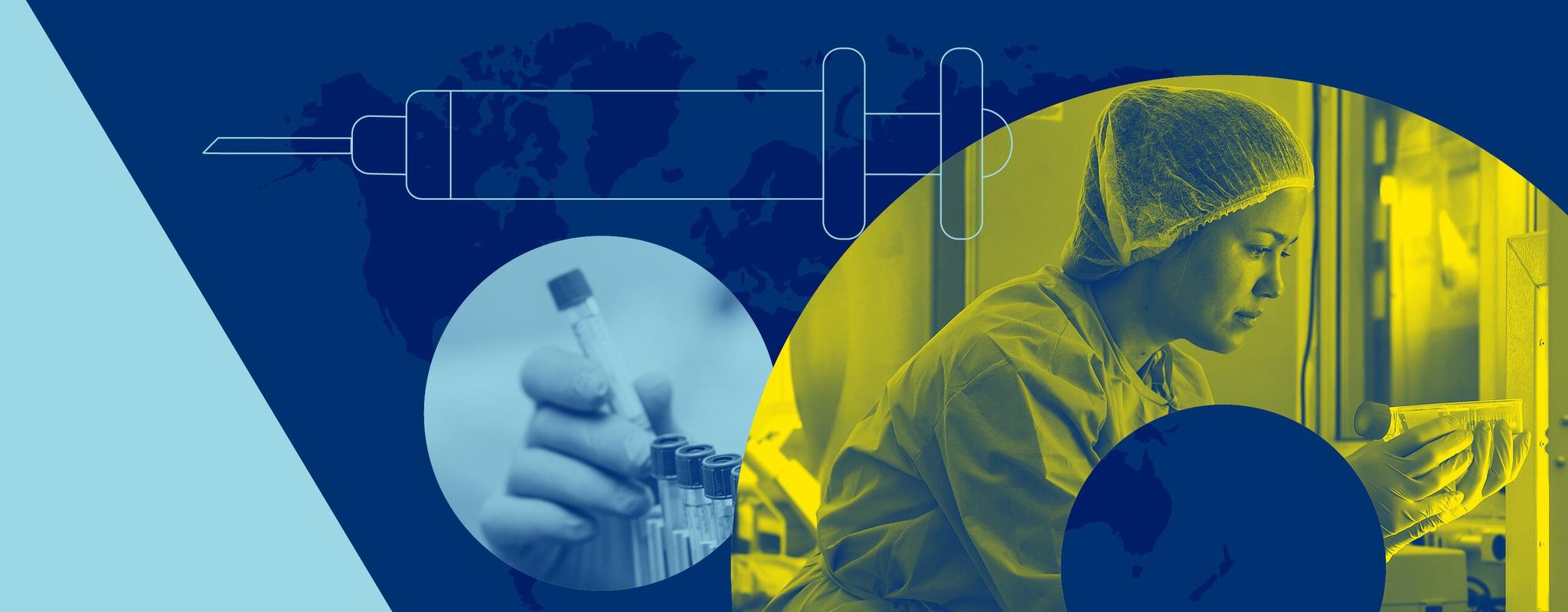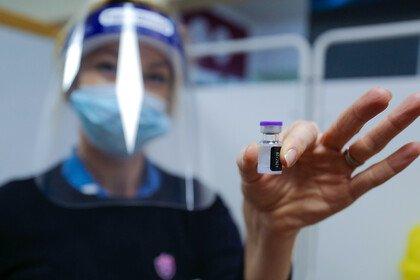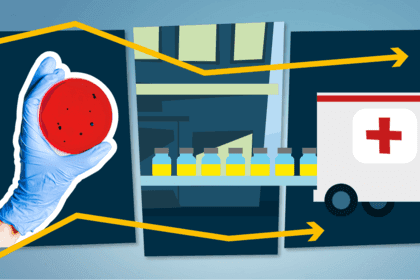
What different types of Covid-19 vaccine are there?
There are hundreds of Covid-19 vaccines in development, with a number now approved and being rolled out around the world. How do some of the different vaccines work and compare?

Wellcome, with photography by Pedro Vilela / Stringer / Getty Images
The development and roll out of Covid-19 vaccines was a historic moment and the result of a global, collaborative research effort. But without vaccines distributed equitably all over the world, millions still remain vulnerable to infection and illness.
This web page was last updated in 2021. The information provided here may not reflect current developments or research.

There are hundreds of Covid-19 vaccines in development, with a number now approved and being rolled out around the world. How do some of the different vaccines work and compare?

Critics warned against the UK policy of leaving a longer gap between doses of the Pfizer-BioNTech and Oxford-AstraZeneca vaccines. Now we have more data, what do we actually know?

Unprecedented international cooperation and focus have led to multiple effective and safe Covid-19 vaccines in less than a year, and created a blueprint for future vaccine development.
Read more about Covid-19 vaccines or visit our YouTube channel.
We’re supporting global vaccine research and development efforts through CEPI, the Coalition for Epidemic Preparedness Innovations.
CEPI has been funding the development of nine Covid-19 vaccines, including Oxford-AstraZeneca and Moderna, with several others in phase III clinical trials.
The first-generation vaccines we currently have were developed to target the original virus, so we need to know how effective they are against new and emerging variants, and how to guide development of the next generation of vaccines. That's why it's vital to carry on investing in research.
Pressing play on the video above will set a third-party cookie. Please read our cookie policy for more information.
Fair global vaccine allocation is the only way to end the Covid-19 pandemic. Jeremy Farrar, Director of Wellcome, explains why world leaders need to recognise this and ensure a truly global vaccination programme is made available to everyone as fast as possible.
To overcome the pandemic, we have to overcome it everywhere in the world. But we will only succeed if vaccines are available and affordable to all countries.
Here's how governments and international organisations can help make sure that vaccines reach everyone who needs them.
Coronavirus treatments and vaccines should first be made available to those who need them most, public polling in several countries shows.
To contact someone in the team, email vaccines@wellcome.org.
See everyone who's in our vaccines team.
Stay up to date with some of the biggest stories in global health, and how we're advocating to improve health for everyone, with our monthly email.